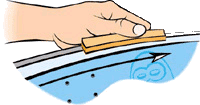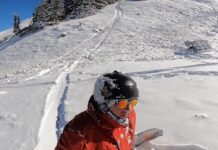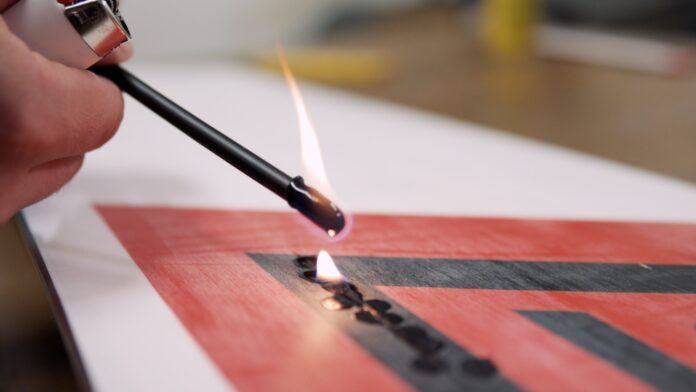
A large part of the existence of a rider incontestably revolves around his Snowboard. However, frequent use of the Snowboard results to damages at Snowboard’s base and edges ranging from small scratches to major cuts. To minimize this occurrence, you need to take time to keep your board in good condition. In this section, here are some Snowboard Tuning Instructions and helpful Snowboard Tuning Tips.
Home Tuning vs. Board Shops
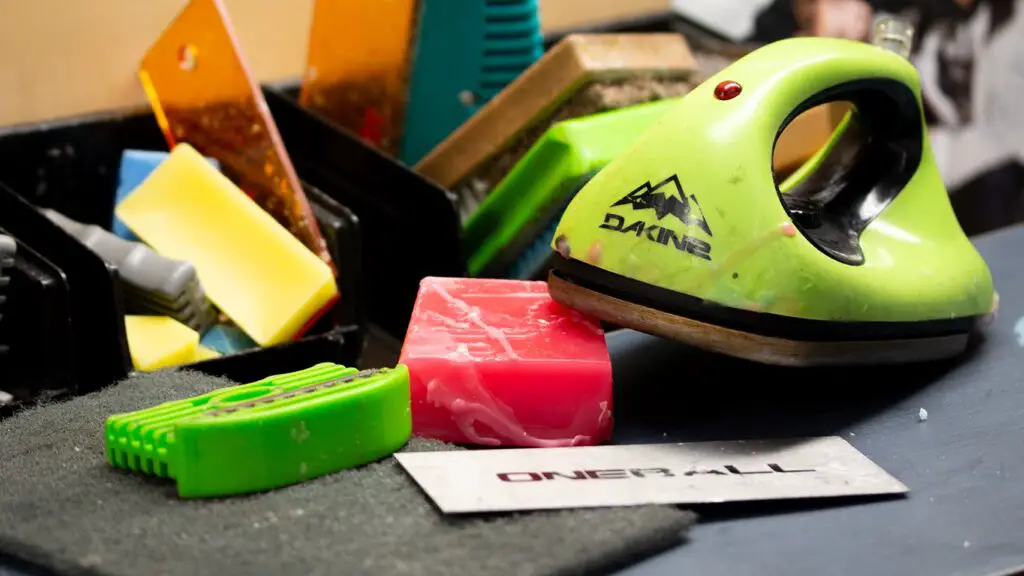
You will be surprised at all the things you can easily do yourself. Basic Snowboard Tuning, maintenance and repair can be done at home with the right tuning kits. However, if your board has taken serious damage like deep gouges in your base, you’re better off leaving the repair to the professionals by bringing it to a Snowboard shop.
Convex and Concave Bases
Base Angles The base of your Snowboard should be totally flat, not rounded. If your edges are higher than your base, then your base is concave. On the other hand, if the edges are lower than your base, then your base is convex. You can easily check the rounding of your base by placing a flat surface against your Snowboard and checking if there’s light coming through the front view of your base.
Convex or concave bases are not that easy to fix. It would be better if you leave these operations to a Snowboarding shop. If you try to do it at home with just files and scrapers, you will probably end up with an uneven surface.
Fixing Burred Edges & Edge Tuning of Snowboards
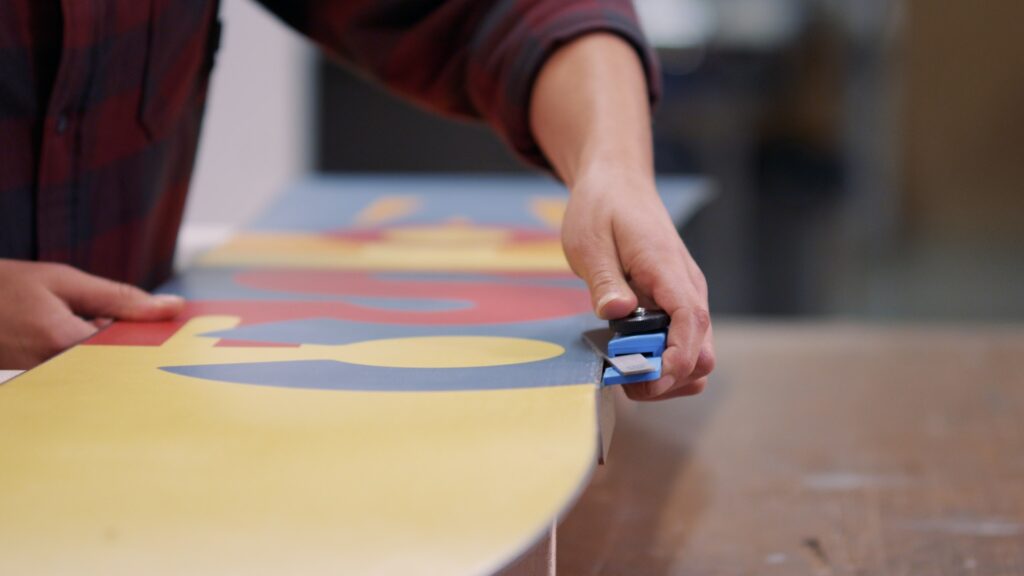
A Snowboard with sharp edges will help you in turns and will improve your general grip and edge control in the different snow surfaces. As you use your Snowboard for longer periods of time, the edges will start to wear off, and become rounded and burred. Edge Maintenance is easy as long as you do it on a regular basis (e.g. every after riding), especially since small imperfections are easier to fix.
Each Snowboard has two edges:
- The Base Edge: the metal edge at the base of your Snowboard
- The Side Edge: the metal edge at the side of your Snowboard
Here are the Steps for Tuning your Snowboard:
Deburring
Use a carborundum or diamond stone and drag it from the Snowboard’s tip to the tail of the edge. Repeat the movement until all nicks and burrs are gone and the edges are smooth again.
Base Edge Tuning
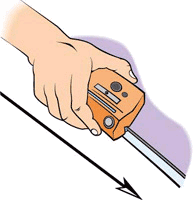
Side Edge Tuning
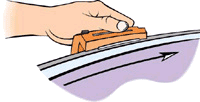
Base edge angle is 0, side edge angle is 90 degrees. Most boards come from the shop with these angles leaving you with enough options to change it.
Base edge angle is 0, side edge angle is smaller than 90 degrees. This gives you a sharper side edge which will increase your grip on turns in snow. This setting is handy for icy conditions.
Base edge angle is larger than 0 degrees, side edge angle is 90 degrees. This dulls your side egde decreasing your grip but increasing your boards grip. It will also make it easier to make turns.
Base edge angle is larger than 0 degrees, side edge angle smaller than 90 degrees. By tuning both edges you can actually maintain the 90 degree in your edge but with a repositioning. Some people find that in this way, they can profit from both effects: more speed and easier turns.
Beginners and even intermediate riders profit most from keeping their edges the way they got them when they bought the Snowboard. Don’t do any major changes in the angles of your edges unless you’re certain you know what you are doing.
Edge Detuning
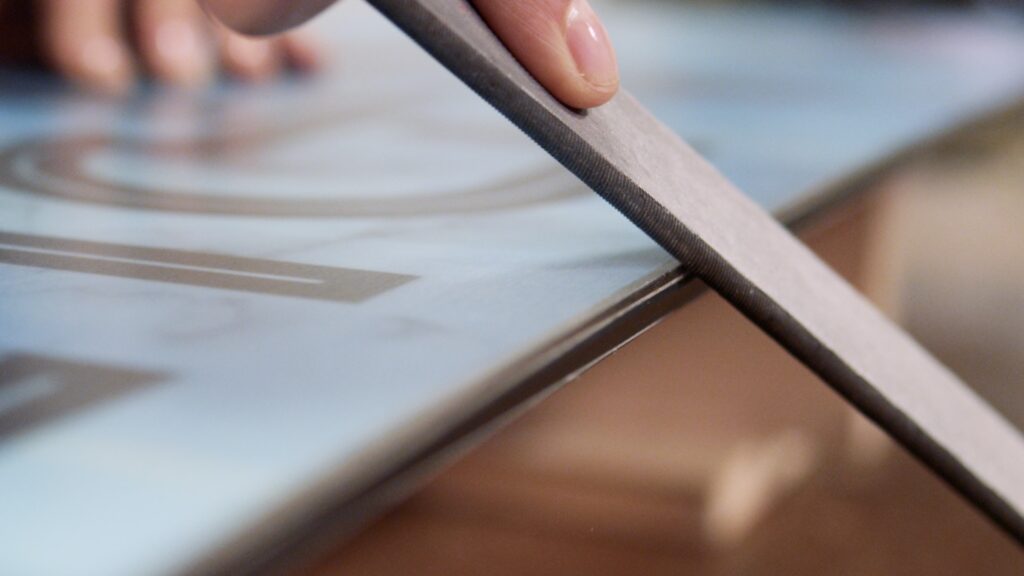
You will want to detune the tip and tail edges beyond the effective edge. Detuning the tip and tail edges will prevent your Snowboard from catching too early in turns.
Smoothing the Edges
Once all the basic deburring and edge tuning and detuning has been done, you can use a whetstone to smoothen out all the edges.
Base Maintenance
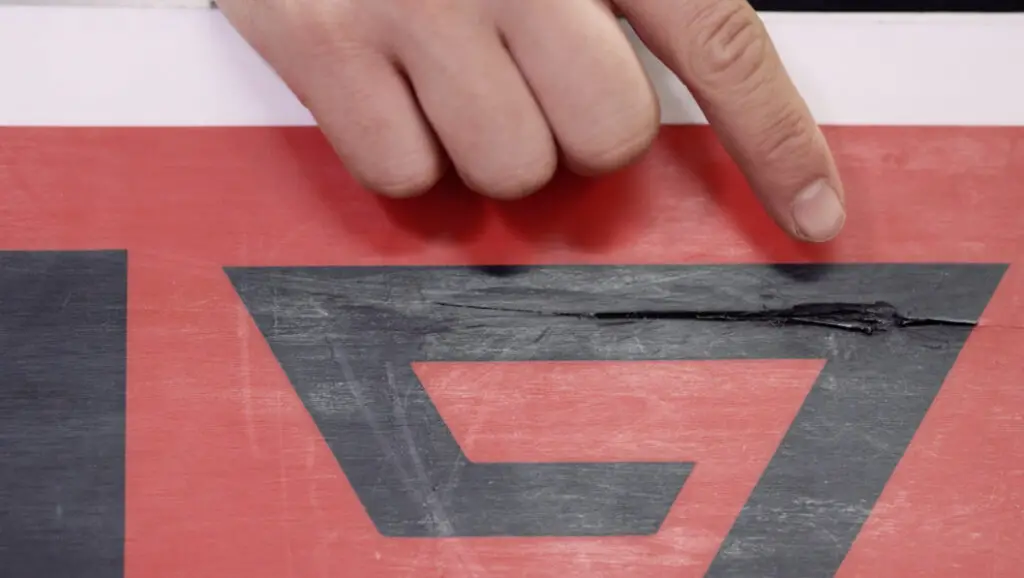
The base of your board needs to be smooth to keep your Snowboard gliding perfectly. These are the steps for basic base maintenance:
Base Cleaning
Wipe off all the dirt of the surface with some cloth.
Apply a special base cleaner to the base of your Snowboard. Special Snowboard base cleaner will dissolve the wax and bring all kinds of impurities to the surface.
Let the cleaner evaporate for about 15 minutes and wipe the surface again.
Base Repair
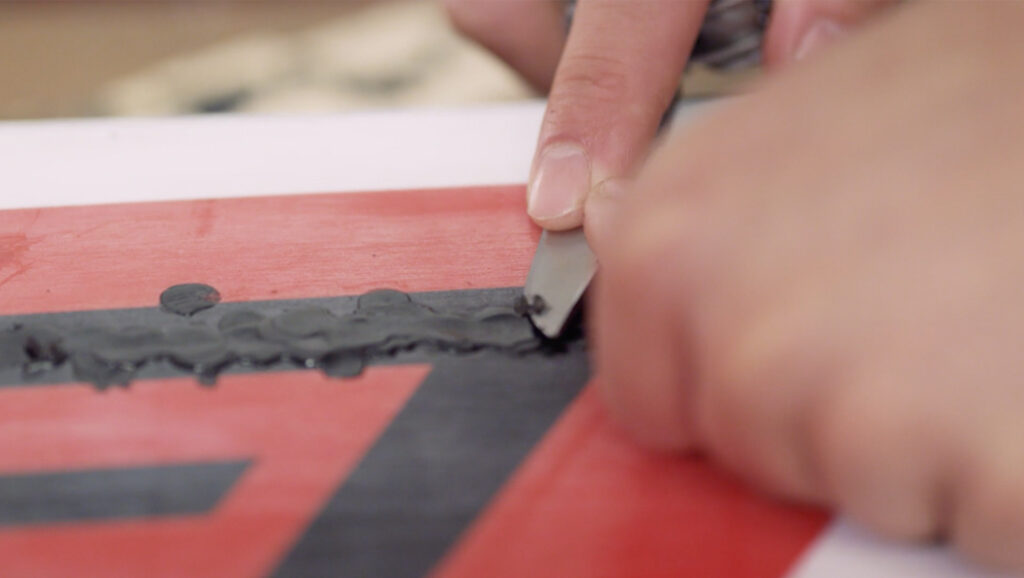
If you have small gouges in your Snowboard surface you can repair those using a P-Tex candle. As explained above, larger gouges should be repaired by the experts. Light one end of the P-Tex candle and let drops of P-Tex into the gouges. Let the board and the P-Tex cool down and then use a scraper to scrape off the excess P-Tex and smoothen the surface.
Waxing
The most common misconception about Snowboards is that, with today’s high-tech board bases, waxing is no longer necessary. On the contrary, those who wax their Snowboard regularly and properly, glides better. To know the benefits of waxing your Snowboard and more information about waxing, go to our Snowboard Waxing section.
How to Wax Your Snowboard
There are several different ways to wax your Snowboard. The easiest way is to let someone else (like your local board shop) do it. But, if you prefer to wax your board yourself the following are steps to guide you on how to wax your Snowboard. Although there are different kinds of wax for different purposes, a general Snowboarding wax will do the job in most cases.
Applying the Wax Applying the Wax
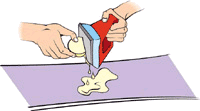
Spreading the Wax Spread out the Wax

Removing excess Wax Remove excess Wax and Smoothen


